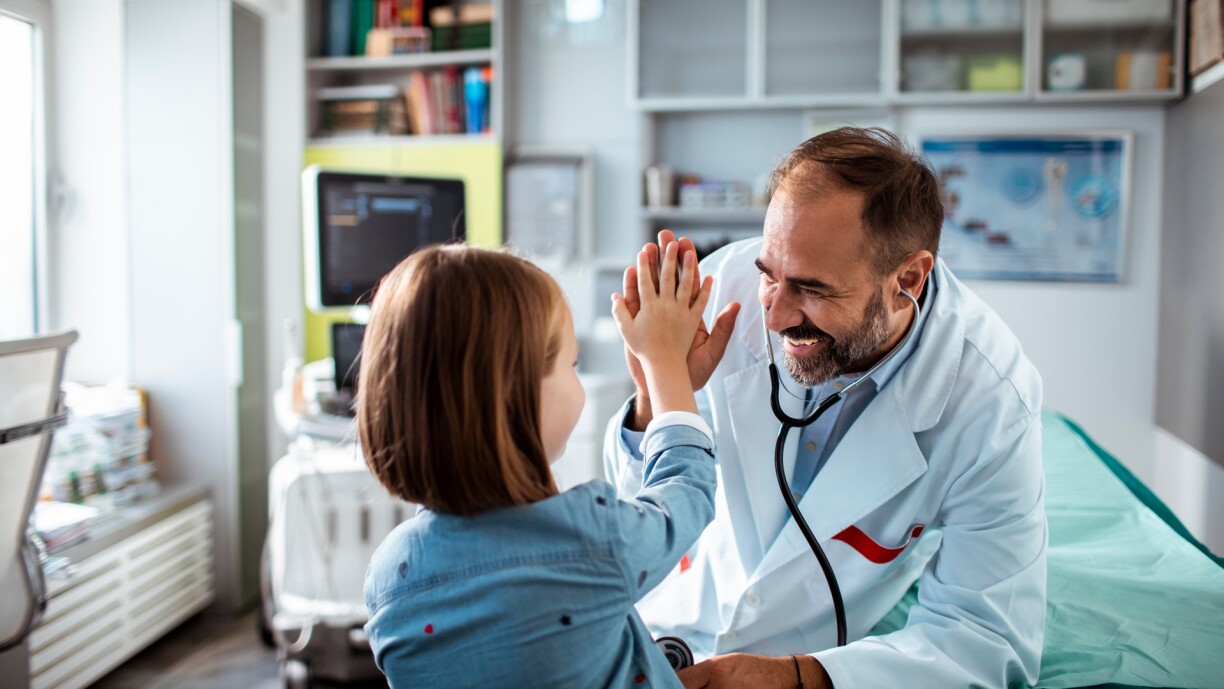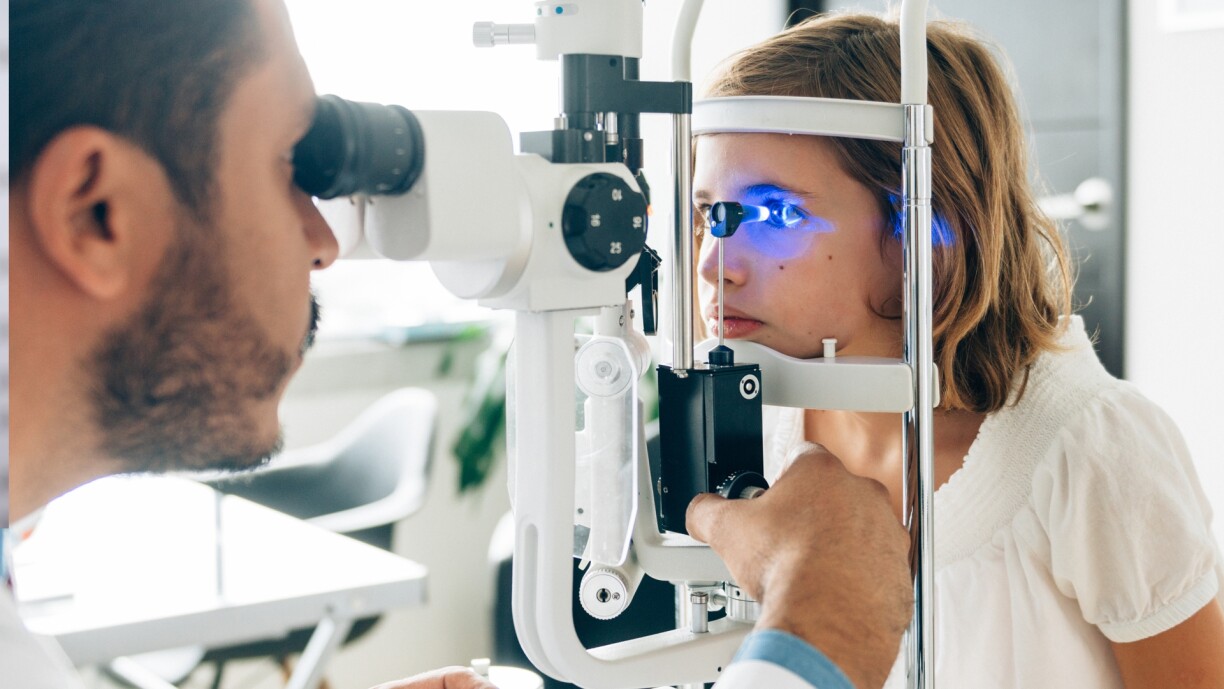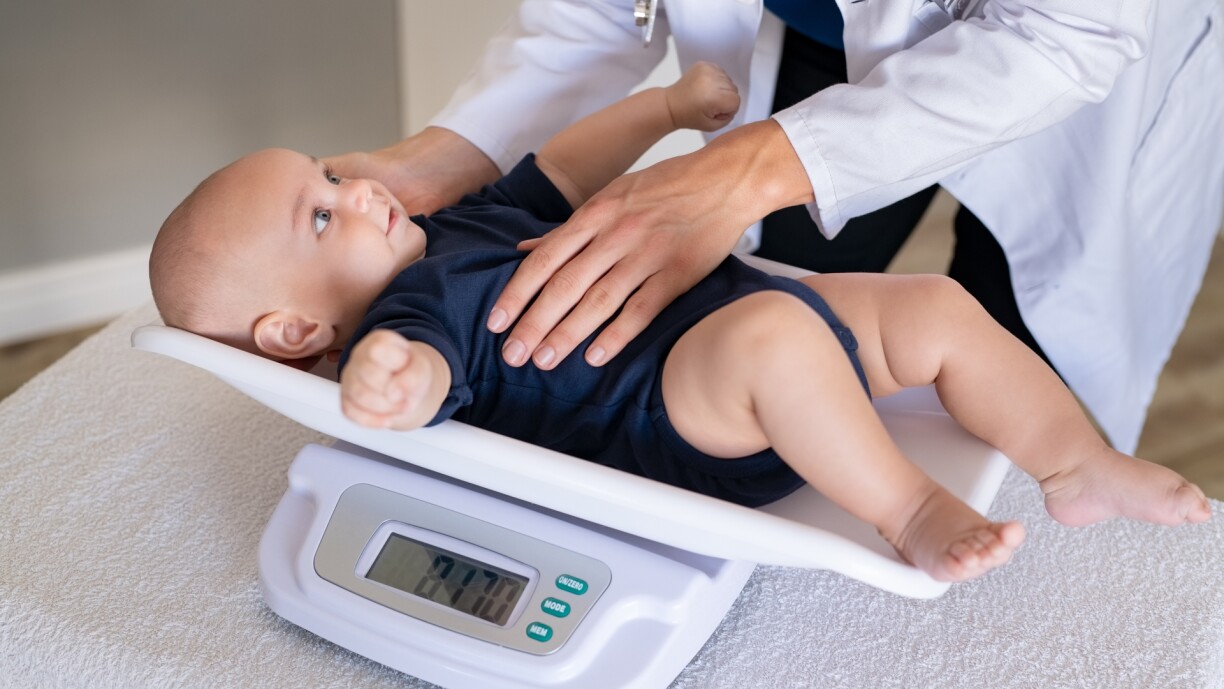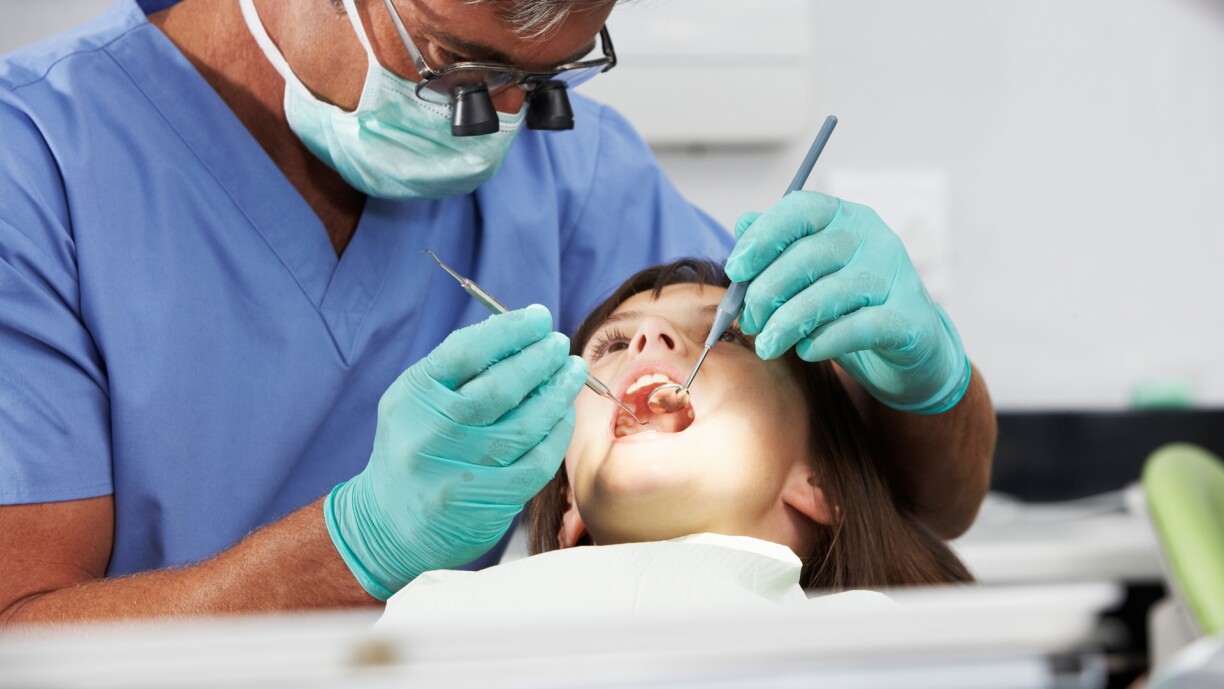
The health system in Luxembourg is effective in reaching young children indicated by high rates of vaccination and participation in health check-ups and screenings. The 2023 Healthy Future report on child health shows over 90% of children engage in recommended health check-ups before the age of two, incentivised by the birth allowance.
Screenings from birth include neonatal testing for six genetic diseases and a hearing test. Further audiometric and language screenings are offered thereafter plus visual screenings, dental checks, routine medical examinations and health checks. Participation is highly recommended as a preventative measure against the associated risks of a late diagnosis.
From birth, a paper health booklet (Carnet de santé) is given to every child as a running record all medical check-ups, screenings, and any health care and services provided between these check-ups. A yellow vaccination card is also given which in time will be phased out and replaced by the electronic vaccination record (Carnet de Vaccination Electronique) which has been rolled out in some health centres since February 2022. See more in our vaccination article.
At school, a medical record is established during the first health check-up and accompanies the student throughout their schooling. It helps maintain the link between the various school medical tests and examinations and is part of the school medical file which includes confidential questionnaires, body mass index curves, specialist reports and test results. These records are passed on appropriately to the medical-social-school team, should a child change school.
For children, screenings include a prenatal screening for congenital abnormalities, neonatal screening for genetic diseases, hearing and visual screenings, dental screening, school health programmes and medical examinations for school-aged children. These preventative programmes are set up either by the Health Directorate, or in partnership between the Ministry of Health and Social Security, the National Health Fund, municipalities and specialist services.
As of 2024, neonatal screening in Luxembourg includes testing for spinal muscular atrophy (SMA). Screening now includes testing for 6 genetic diseases and usually takes place on the third day of life after birth via blood sample taken at the baby’s heel.
Healthcare staff use different techniques to prevent the baby feeling a sting and the blood sample will be analysed by the National Health Labroratory (LNS). Since screening began in 1968, more than 250,000 babies have been tested with 135 affected children being identified and treated within the first two weeks of life.
Luxembourg screens for the following six diseases;
See here for more information.
In Luxembourg, the Health Directorate organises and carries out audiometric screening for newborns, a speech and language assessment with a hearing test for children at 30 months of age (Bilan 30), and a hearing test for 4 – 5 year old children attending any state or private school.
All newborns can benefit from a hearing test which usually takes place during the first two days of life at the maternity hospital. If you leave hospital before the test is carried out, the Audiophonological Service will automatically send out an appointment to attend one of their premises.
The test is optional but highly recommended given the impact on a child’s psycho-social development should there be a late diagnosis. Screening is quick, painless and preferably carried out while the baby is sleeping. It is fully funded by the Ministry of Health.
A small earphone is placed in the baby’s ear canal that sends out sounds to stimulate the hearing cells in the inner ear and makes them vibrate. As these cells vibrate, they produce a faint sound that can be recorded by a microphone in the earphone. If this sound is recorded, it proves that the ear is working properly. The results are obtained immediately at the end of the test.
An optional, speech and language assessment with a hearing test is available for children at 30 months of age (Bilan 30), which is free of charge. An invitation will be sent out to parents from the Audiophonological Service. Part of the test is to identify temporary or permanent hearing disorders.
Conducted by a speech therapist, the test is fun and engaging. Part of the assessment involves tests for low, medium and high pitched sounds. Two small sound boxes placed either side of the child who will determine which side the “beep” is coming from.
The child is asked questions about a number of pictures encouraging them to explain what they are seeing as a means of monitoring language development. The test can be carried out in different languages, according to the childs mother tongue and the speech therapist can give helpful feedback and advice.
The 2023 thematic report on child health shows 40% of children attend Bilan 30.
The hearing of all children enrolled in cycle 1.2 is checked by the Audiophonological Service who will visit all nursery schools, public and private, to carry out a quick hearing test.
The WHO recommends an eye examination for all newborns and an age-adapted vision examination for all children from 3 years of age. This offers early detection of potential amblyopia, strabismus and refractive errors. Further assessment is recommended for all infants and children during ‘Well-child visits’, see more on those below.
The Health Directorate in Luxembourg has set up a visual screening system offering free of charge and optional consultations with an Orthoptist, starting at the age of 10 months (Vision test 10). Children who participate will then be invited for a follow up at 40 months (Vision test 40).

Invitations are sent by post and the appointment is made via myguichet.lu at any one of the eight visual screening centres across Luxembourg.
Screening is also available to pre-school children aged four to six years old from all public and some private kindergartens. In primary and secondary schools, visual screening is conducted as part of the school medical examinations.
Vision test 10 and Vision test 40 are carried out by an Orthoptists who will;
The vision screening tests are not an opthalmological examination and do not include an examination of the back of the eye and no medical prescription can be made. Additional tests may be performed at different ages if the 10/40 vision test was incomplete or if the child requires monitoring.
Well-child appointments are in place to monitor overall health, growth and development from birth to age of 18 and are fully reimbursed by the National Health Fund. Even if the child appears healthy, participation is encouraged as these check-up appointments include a physical examination and assessment of developmental milestones.
In Luxembourg, provision up to the age of four relies primarily on paediatricians and GP’s. The appointment timelines, objectives and criteria to be monitored are recommended by the WHO. Recommendations propose five visits between the age of one and 24 months, then at three, four and five years old, followed by visits at eight, 10 and 12 years of age.
For infants, check-ups have been offered since 1977 and are incentivised by the third installment of the birth allowance, awarded on completion of six visits before the age of two which are scheduled as follows;

From the age of two, two medical visits are offered and include checks of physical, functional, cognitive and emotional development. These preschool assessments are reimbursed by the national health fund and take place;
School medicine is provided by medical-social-school teams that are approved by the Ministry of Health. Approval is usually granted for a period of three years.
Every year, students in preschool and primary education undergo systematic screening and monitoring tests and measurements. In secondary and technical secondary education, they are carried out only during health checks and systematic medical examinations.
Each municipality organises examinations, including visual and hearing screening for pre-school and primary education (children aged four to 13). Since 1991, examinations at pre-school, primary, supplementary and special education levels are mostly delivered by multidisciplinary teams from La Ligue.
All municipalities bar five rely on La Ligue, with the remaining five municipalities operating their own medical, social and school teams which must be accredited by the Ministry of Health.
Typically, school medical exams include:
Routine health check and monitoring measures include:
School medical services are placed under the authority of the head physician of the School Medical Division of the Health Directorate. The Directorate of Health is responsible for the oversight of the medical health examinations in all state schools in four different school years (Cycle 1.2., 2.1, 3.1. and 4.2.) as well as for annual dental screening.
The School Medicine Division of the Ministry of Health is responsible for the organisation of school medicine at the post-primary education level. At secondary school, there are fewer appointments scheduled which might be concerned with mental well being, physical health or further vision assessments.
Routine medical examinations may be carried out at the following times:
It includes clinical elements and personalised advice in the field of health education.
The clinical examination covers the cardiovascular, respiratory, digestive, genitourinary and locomotor systems, as well as the nervous system, skin, appendages, eyes, ears, nose, throat, neck, herniated areas and the lymphatic system.
Personalised counselling in the field of health education takes into account the student’s specific situation and problems. The examinations also consider the child lifestyle via a confidential questionnaire addressed to the parents or the person responsible which allows the relevant data to be collected from primary school pupils.
Monitoring of the dental health of pupils in preschool and primary education is carried out by the School Dental Medicine Department of the School Medicine Division. It is carried out in all municipalities in Luxembourg that do not have their own dental medicine department.

In Luxembourg, dental screening for pre-school and primary school pupils is the shared responsibility between municipalities and a school dental team from the health directorate. The first oral examination is in the first year of preschool with an oral examination scheduled each year thereafter for primary school students.
Dental hygiene education is aimed at all students in preschool and primary education and is complementary to oral examinations. Students learn how to brush their teeth properly, eat healthily and visit the dentist regularly.
Since 2022, every child screened in cycle 1 and cycle 2.1 participates in an oral health promotion workshop to raise oral health awareness. In addition, two preventive visits to a dentist are recommended at the ages of 30–36 months and 42–48 months. Since 2023, information on these preventive check-ups is mailed to all parents of children aged 28 months.
Oral examinations scheduled in the 2nd and 4th year of secondary and technical secondary education cannot be carried out by the dentist but is provided by the school doctor
The main objectives of oral examinations are:
Every year, global statistics on the evolution of the oral health of primary school pupils are established and the frequency of dental cavities is studied according to the age of the children. The WHO European regional office provides country estimates of the prevalence of children aged one to nine years with cavities of milk (baby) teeth.
In Luxembourg, the estimation is 29.2%, which is similar for neighbouring Belgium (30.2%), France (29.2%) and Germany (29.1%). The 2023 thematic report show 42% of children attend both preventive medical visits at three years old and 19% attend a preventive dental visit at four years old.